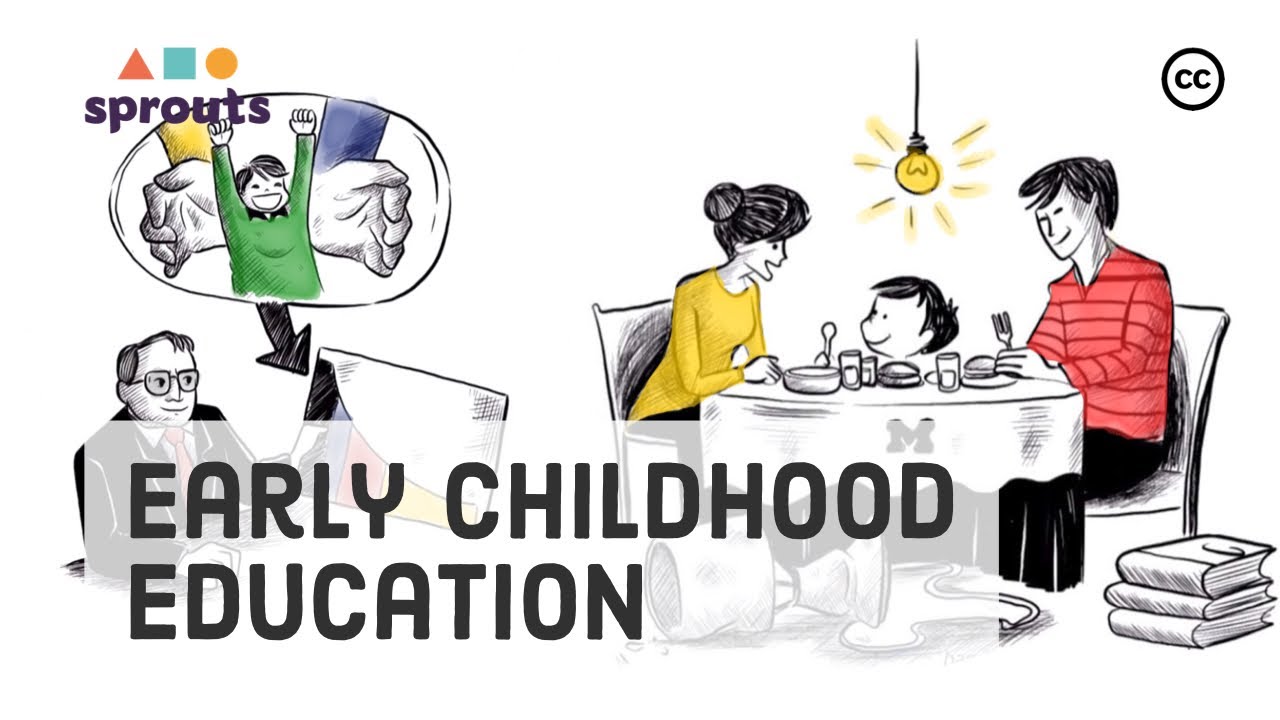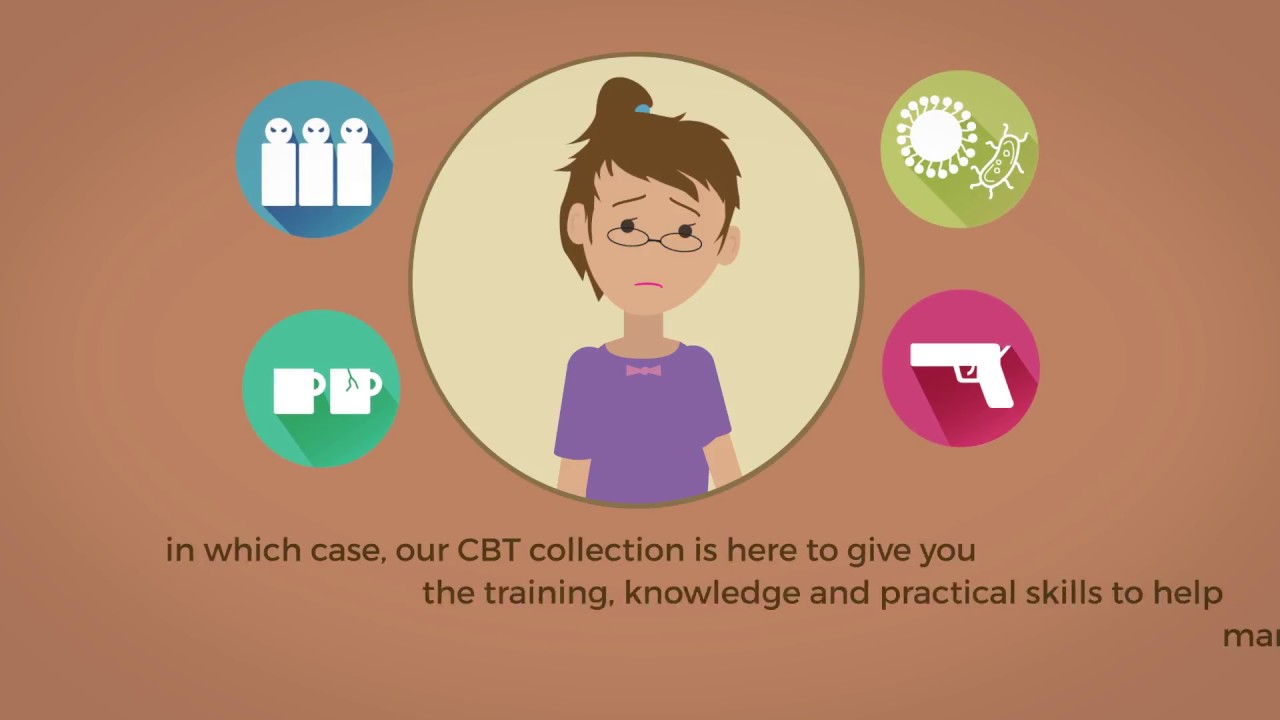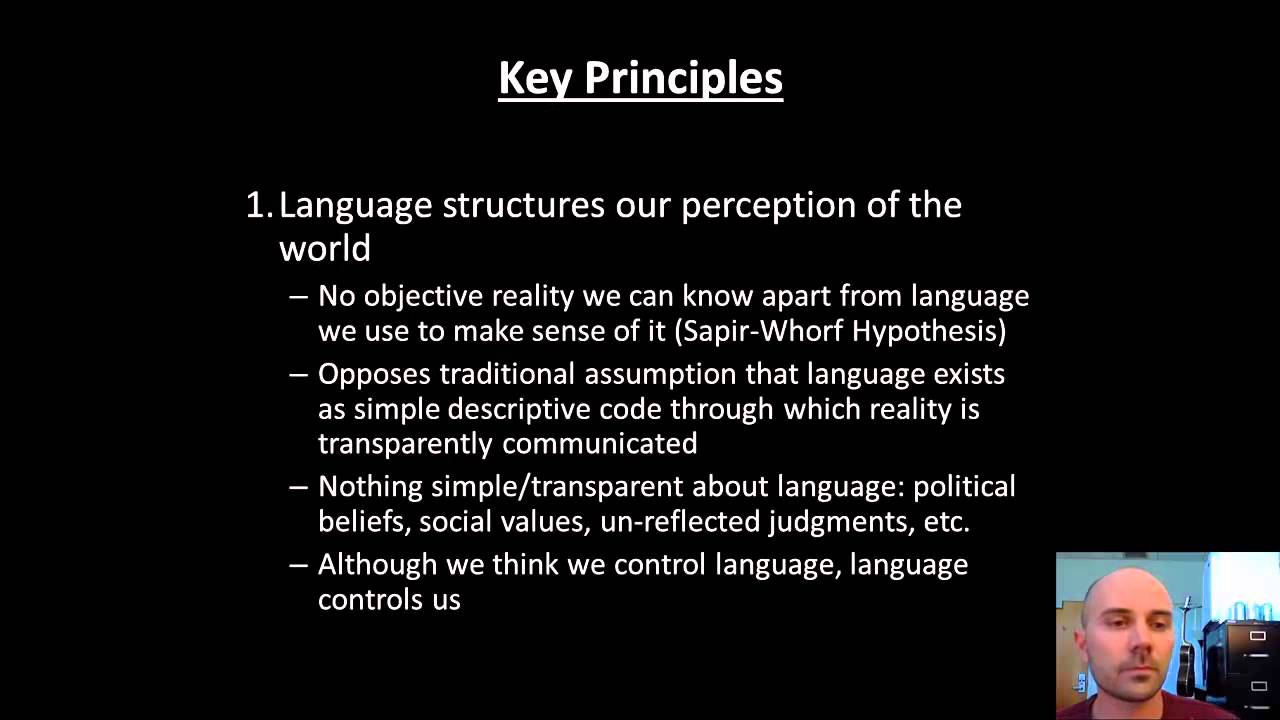Sprouts
Here what science says about Early Childhood Education. To support our early years, visit www.patreon.com/sprouts
Source:
30 Million Word Difference
http://www.aft.org/sites/default/files/periodicals/TheEarlyCatastrophe.pdf
The High Scope Perry Preschool Study
http://www.highscope.org/file/research/paerryproject/specialsummary_rev2011_02_2.pdf
University of Michigan – How American Children Spend Their Time
http://preview.tinyurl.com/yb4bzzu3
The Heckman Curve
https://heckmanequation.org/resource/the-heckman-curve/
What a child experiences during the first years of their life has a lasting impact on the development of their brain. While genes set the roadmap, experiences create the neural connection inside the brain that sets the foundations of our emotions, language, motor skills, vision, and memories. If one region gets additional stimulation, the neural pathways within that area and the connections to other areas grow stronger. This process is called synaptic pruning.
You can also imagine your brain as a planet. There is Motor Skill Metropolis, Memory Mountain and Vision Village. Through the years, popular cities grow bigger and links between them get larger. Now if one area was never developed, there can be traffic jams. This then slows down the development of the entire brain. Some neurotransmitters will be tired of getting to work. Others will take short cuts and get lost.
Imagine your brain is a planet. Big cities have many houses, roads, and connections to travel to other big cities. If they are popular, over time those cities and links between them grow bigger and stronger. But if one town was never developed, citizens will have trouble to get around. As a result, there is little business and traffic jam for everyone who wants to pass through. This limits not only the development of that area but limits the growth of the entire ecosystem.
Betty Hart and Todd Risley studied children’s exposure to language. On average children from families on welfare were exposed to about 600 words per hour. Kids from rich families got about 2,000. By the age of 3, the gap becomes 30 million words. But it didn’t end there. Children from privileged families received much more positive feedback. For every 6 words of praise, there was only one word of discouragement. Welfare kids, however, heard twice as many discouragements than praise. This could make a difference that lasts a lifetime.
In a study that began in 1963, psychologist David Weikart and his team randomly divided 123 underprivileged kids into two groups. One group spent two years at a top preschool with excellent teachers. They made art, discussed problems, and received a lot of attention, respect, and love. For the other, life went on as usual. Often without much attention from anyone 40 years later the Highscope Perry Preschool Study was published.
At age five, 67% of the children in the top preschool group had an IQ of over 90, they were school-ready. Of the others, only 28% achieved that. At fourteen there was a big difference in basic classroom achievements. At twenty-seven the top preschool group was more likely to own their own home. And at age forty they earned more money and were less likely to ever be sentenced to jail.
The researchers concluded that the two years at preschool nourished the children not only intellectually but also gave them social skills, courage, and perseverance. This combination of character strength, also called Grit, was later responsible for their success in life. The 15,000 dollars invested in putting those kids into preschool, later benefited the entire society, mainly through a reduction in crime. The total return of investment was estimated to be at a 195,000 dollars.
In 2006 Nobel Prize-winning economist James Heckman published what became known as the Heckman Curve. It shows the return of investments in education, which is the highest in the early years. Governments have since started to act. In Germany, parents get a lot of financial support to raise their kids. In Japan, mothers or fathers can take a full year of paid leave. In France, all children go to Kindergarten free of charge.
If you happen to be in charge, know that with every extra minute you spend encouraging and talking to that little troublemaker, you might be doing him a favor for life. According to the University of Michigan: “regular family dinners are a stronger predictor of good grades than doing homework.”
Source




Help us to reach more parents to learn about early childhood education: https://patreon.com/sprouts
All the videos on this channel are very informative and helpful. Being a teacher I share many of your videos with my students as it gives them a better understanding of the lesson.
It would be very nice if you make a video regarding Parten's theory of play.
So for 1000s of years, we species flourished & now that socialism is running rampant arnd the global, parents are no longer qualified to raise their kids – the community is better (?). WTFudge? I don’t buy it. If you want to start government programs, what you should be starting his programs that strengthen and enable family and family values – early childhood education schools empower the exact opposite of that.
I went to school for years I was really surprised at the approaches they work I did a great job helping single and poor families at a low price included long meals extra twenty four hours it was my calling. I individualized personalized and though many were labeled problems I rarely seen any real concerns they were accepted and flourished all through the years oh I suppose we can say nurture nature but love and care and time and simplicity it works
It’s important for children at one and two to get stimulation but good kinds of education ….. then at three small and large motor skills language. Etc good influences …… oh by four five your child needs to stay in preschool until they are able to read write and know concepts. ….. start kindergarden then even if your ten yes I said it if you can’t read chapter books by 6 stay in preschool or kindergarden repeating skills over and over until you can otherwise it weighs down others keeps them behind. It’s just ridiculous to teach algebra to a kid who can’t do fraction. Or multiply or read or understand. The basics
Hello,
The YT channel purpose is to encourahe children to read.
https://www.youtube.com/channel/UC_UU0okTR90f5Pvv-yZaAYA
Early year..
http://mikekayira.blogspot.com/2022/04/how-can-childs-brain-be-stimulated-for.html
👍👏👍👏👍👏👍
thank you 🙂🙃
https://youtu.be/Lk1h8Mg96zg
Early Years and Special Needs Education. https://www.youtube.com/watch?v=W4ksxDLxKZ4
Growing up from country where the people believe in spanking student publicly in class in front of each other…I mean unshowered sweat pant in class is a death sentence, of course there isn't black or racism or economics inequalities or any other crap In vietnam, also there are no enforcement in alcohol and sex consumption, but that is everywhere, especially in America, all of the above doesn't matter, really
The two groups were kids from bad homes. Therefore this study should not be applied to all children. Children from warm, loving, responsive parents actually do better and are more health emotional than children dropped off at preschool. Most children should not be away from home until 7. Please do more research before dropping your kid off at some building.
1:18 There are only 171k words in English. Misleading comparision in use in the video.
https://youtube.com/channel/UCitxhCJU17w36nTafb9CwaQ
https://youtu.be/C6rP_QaHkJU
Practice of psychology is very un ethical you cannot condition population for the sack of your study
Your short videos are just really great and helpful.
I really liked the ending part that "having a family dinner together" is a greater predictor of grade compared to doing homework. That hit hard because it shows that it isn't only the money difference but also the time spent with family.
Very interesting.
https://www.youtube.com/channel/UCoFHu2ahhX_-r-lOh51mvjg
I am a passionate educator and I Direct 6 Early Learning Centers in USA.English is my second language. I moved here when my daughter was 1yo.She is 6 now. 1st grader. I was always afraid she would struggle with the language since we speak Portuguese at home, but it is the opposite. She was the first one to learn how to read in her classroom. Her vocabulary is AMAZING. She received awards for reading.But of course I do read with her every night since she was a baby.More than 1hour per day. She loves books!So if “Poor Pete’s Nanny” have spoken another language consistently, maybe he would be better too.🙂
There’s actually no judgement in this video. The research shows the truth: money can buy some time that one can spend for talking to kids. That’s it. (The problem is that reach uneducated families don’t usually spend their money this way, I bet this category just wasn’t included in the experiment).
Basically, this research is proving the importance of investments in education to governments. For parents though, it’s just a reminder to treat kids nicely. Nobody is judged or discriminated here. One can find judgment in sunlight, if this is what he wants.
Unrealistic and works only for the privileged. It's about having the funds, time and resources.
And besides, if most children grow up to be successful in life, who is going to work in the service industries and produce things for these career people? :p
Early childhood education programs include all type of educational programs which serve kids in preschool years & are intended to improve their later school performance. Early childhood education by Eye Level is more than the preparation for your kid’s primary school. It aims at holistic development of your kid's social, emotional, cognitive, and educational skills. For more details visit us at https://www.myeyelevel.com/India/index.do
Most of this is accurate. Though I disagree with the privaled and wealthy kids growing up with more attention and care. It's instead more correct to say educated. Specifically children who grow up in families with college degrees are given more care then families who don't.
Well i think this is the best channel i 've come through ! information are provided in a simple and attractive way. Thank you for the effort !
I didn't know about the importante of the education in the early stage of life. Thanks a lot.
三歲定八十, 教育在童年. 少壯不努力, 老大徒傷悲.
Sorry.. I want to ask about Cathy Nutbrown's book about early children education. Is that book worth it for college? Thanks..
I am a developmental psychologist and researcher in early childhood education. Research has shown that the Hart & Risley study was methodologically flawed and culturally biased, and findings not replicable when conducted with a cross-cultural approach to development. The bias and ideologies against families in poverty or on welfare is replicated through your propagation of these inaccurate and biased data, and your depictions of the families. This is an irresponsible and harmful overview of research in early childhood education. You have a platform. Be responsible, educate yourselves, do better.